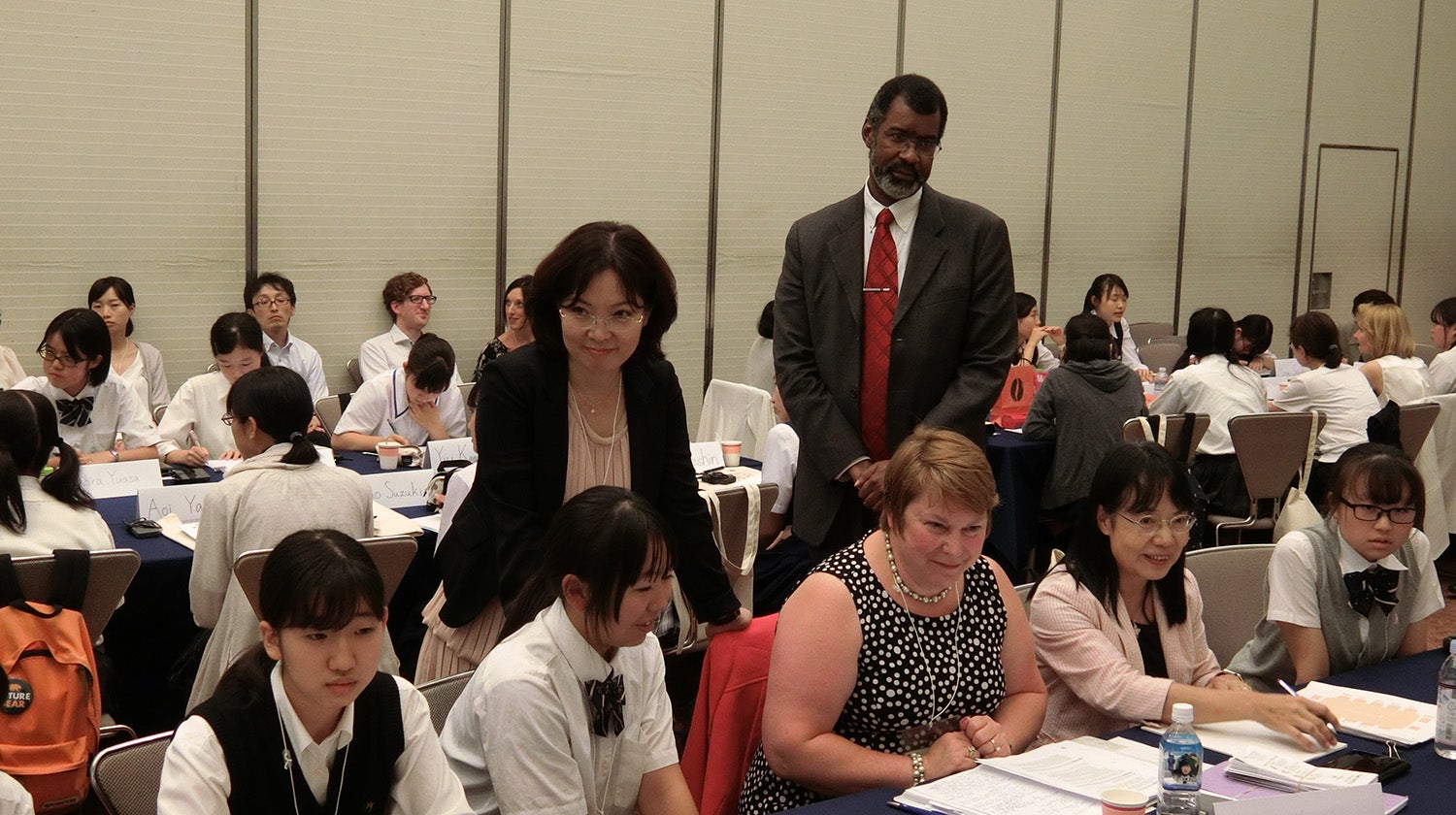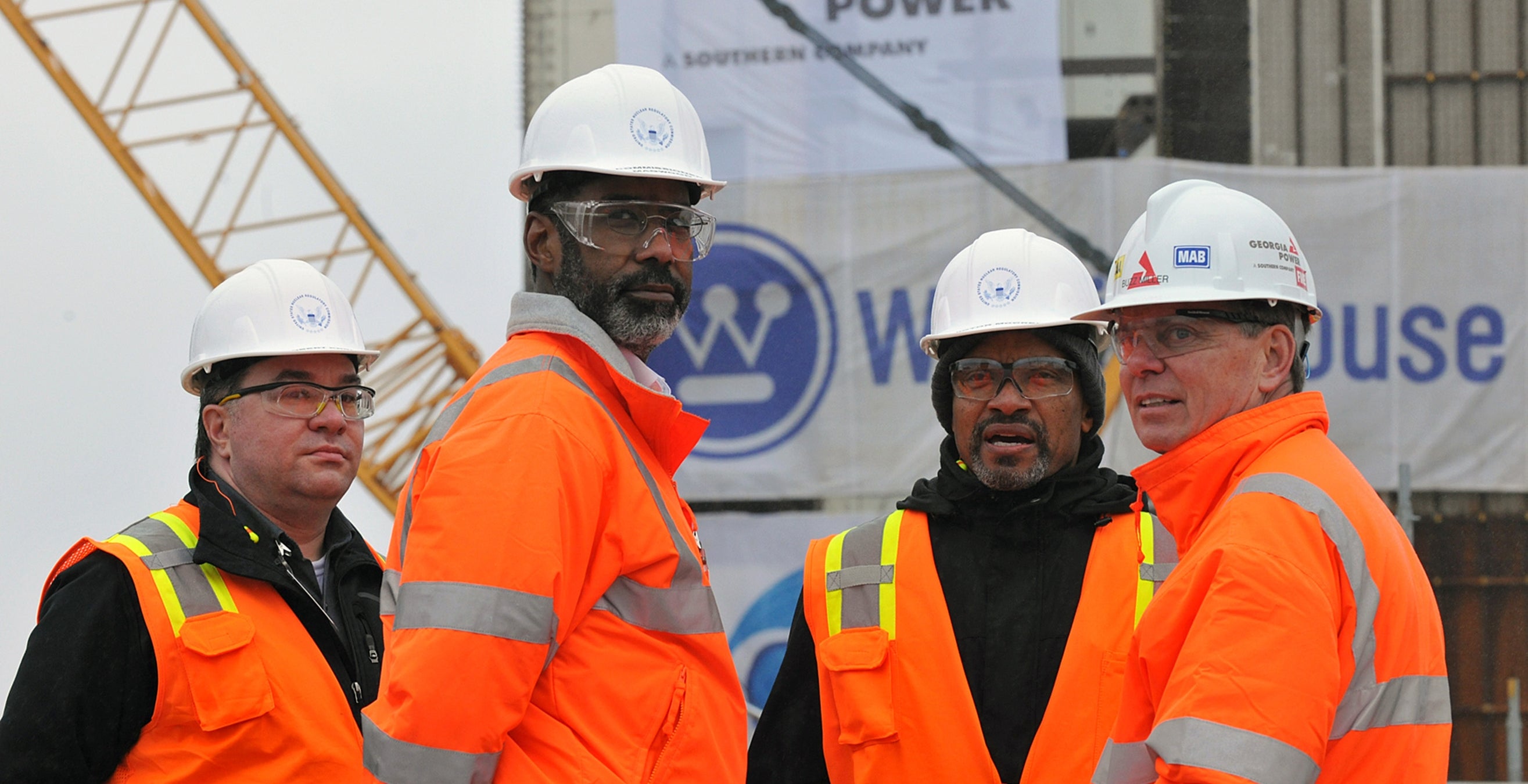Dozens of girls are seated at tables in the auditorium of a Japanese high school. They are eager and excited, ready for their honored guests: female science and technology professionals who have come from around the globe to support and work with them.
It’s 2017 and this is the first International Mentoring Workshop on Science and Engineering. Looking on with a smile is William D. Magwood IV, a Pitt alumnus and director-general of the Nuclear Energy Agency (NEA ) — an intergovernmental technology and policy organization and co-sponsor of the workshop.
The idea for the program was sparked by Magwood’s longtime interest in promoting more diversity in nuclear energy. Women, he recognizes, are particularly underrepresented in the field. He’s made introducing young women to the nuclear energy world — and science and technology in general — an NEA priority.
In the five years since the launch of this mentoring workshop in Japan, the NEA has hosted 11 more workshops in science and engineering in five countries, including Kenya and Romania. The NEA also recently launched the Global Forum on Nuclear Education, Science, Technology and Policy, a working group that, among other global nuclear education priorities, aims to improve gender balance in the field through data-informed policy.
Equal opportunity is both a professional and personal issue for Magwood. Throughout his career, he’s often been one of the only Black men in the room.
“Young people, as they're searching and deciding what they want to do with their lives, need the opportunity to explore,” he says. Gender, race and nationality, shouldn’t get in the way of doing so. “Everybody deserves an opportunity just to follow what their skills take them to.”
That’s what Magwood did.
Growing up in Pittsburgh at the beginning of the Space Age in the early 1960s, Magwood developed an interest in the field of energy “because it seemed that everything you wanted to do required energy, whether it be for electric generation, for heat, or for space.”
He studied electrical engineering on the suggestion of a former teacher during his first year as an undergraduate at Carnegie Mellon University, but the fit wasn’t perfect. The next year, he switched majors to physics, a subject he had loved in high school.
Throughout college, he spent summers at the Westinghouse Research and Development Center in Churchill, Pennsylvania. There, he worked alongside hundreds of scientists researching everything from energy and transportation to consumer electronics — all in cutting-edge laboratories.
When he graduated from college, the jobs immediately available to him were in nuclear energy — but he wasn’t interested. The partial meltdown at Three Mile Island near Harrisburg, Pennsylvania, had occurred just years before and the nuclear sector was facing fierce criticism and defunding. So, while continuing to look for the right position in science, he decided to further try out another longtime interest. He enrolled in the graduate program in creative writing at Pitt, where he earned a Master of Fine Arts degree.

But the draw of science and technology was too strong. He passed on opportunities to pursue an academic career in the humanities and found his way back into the industry with a job dealing with nuclear waste and nuclear fuel at Westinghouse Electrical Corporation. Then, he moved to Washington, D.C., to work for Edison Electric Institute where he managed nuclear policy programs and electric utility research. He climbed the ranks of the energy world, becoming the director of the U.S. civilian nuclear energy program at the U.S. Department of Energy (DOE) where he says he rebuilt the program from the ground up, formed international alliances and established a new national laboratory focused on nuclear energy. Later, he was appointed a commissioner with the U.S. Nuclear Regulatory Commission by President Barack Obama and confirmed by the U.S. Senate.
All along, he says, his creative writing skills honed at Pitt have shaped his career nearly as much as his technical education. “The ability to communicate complex technical concepts and ideas to non-technical people — such as members of Congress — was a specialty that made me successful in Washington,” Magwood says. “It’s even more important in an international venue,” where he can have an even greater impact.
Even after becoming the NEA’s director-general, Magwood made a point of hiring, mentoring and promoting women and people of color.
“When I took over at the NEA,” he notes, “in its 60-year history, there had never been a woman who led a technical division of the agency. They are now the majority and doing extremely well.”
He’s also worked to bolster equity in nuclear engineering education. As head of the nuclear energy program at the DOE, Magwood spearheaded the creation of programs that partnered historically Black colleges and universities with schools that had established nuclear engineering programs, giving more Black student access to energy-related educational opportunities.
His efforts in nuclear education have brought him back to Pitt, where he was an early supporter of the University’s undergraduate and graduate nuclear engineering programs — the region’s first. He’s also returned to campus for numerous speaking engagements, including Pitt’s Nuclear Engineering Night, where he spoke to students about the national and international reemergence of nuclear power and energized them to get involved.
To create and sustain a robust nuclear energy system, he says, “we need to be much more connected to society and to show that the values that people have, the expectations that people have, fit very nicely with what nuclear offers.”
“I just try to encourage people to do what they want to do, not what people think they should do,” he says. “What makes you excited about being alive? That’s the thing you should do.”
Cover image: William D. Magwood IV (second from left) visits the construction site of Georgia Power's Plant Vogtle, which will house the first newly built nuclear units in the U.S. in the last three decades.
This story was published on May 13, 2022 and is part of the Spring 2022 issue of Pitt Magazine.

